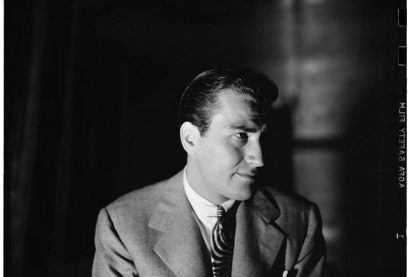Born in 1910 as Arthur Arshawsky, Artie Shaw grew up in the city of New Haven, Connecticut. He faced antisemitism from the locals as a youngster. The hostilities caused him to be introverted and develop an interest in music. He was attracted to the saxophone but switched to the clarinet at a later age. Despite his developed skills in music, his local bandleader did not hire him because he couldn't sight-read music. Shaw went away to learn sight-reading and was back in a month. He soon quit school to play and tour on the road full time.
Talented band manager
In the beginning, Artie was a performer who worked with many bands and orchestras. He earned a good reputation as a director and arranger of bands and orchestras. After that, he worked as a studio musician, in which he performed commercial music that he often didn't like. However, he was handsomely paid during the height of the Depression. One of his musical projects was hiring Billie Holiday (an African American singer) for his band while touring the South. During the segregation era, this was a significant move. He was one of the first white musicians to break the racial barriers at the time. During the peak of his career, he was earning $60,000 per week, which in today's dollars would be about $600,000.
When the Second World War broke out, he enlisted in the US Navy and formed a band during his military service. He used his talent in entertaining Navy personnel of the Pacific theater to raise the troop morale. However, due to performing multiple events a day, Antie came to a state of physical exhaustion and received a medical discharge.
Innovation
Two tendencies defined his career in music. His major talent was his ability to form and manage a band to produce widely loved records. He was much like a serial entrepreneur; he would create a band, develop the band to produce songs that would satisfy the audiences of the time, and then disband the group. His second tendency was his unorthodox taste in music and his inclination to innovate with the themes of his time. An example of this is when he gained attention for his "Interlude in B-flat" at a swing concert at the Imperial Theater in New York. It received great ratings by combing elements of swing jazz and classical music. But because the sound was not commercial, Artie dissolved the band.
Retirement
The commercial aspect was one thing that Shaw did not love about the music business. He found commercial music to be boring and was not passionate about his work. He didn't get to make the music that he wanted; instead, he had to play the music that others wanted. In combination with his distaste for fame and celebrity status, this fact made him quit the show business in 1954. He focused his energy on writing, which he loved a lot. But he did involve himself in some musical side projects.
Artie is example of someone who succeeded in something he didn't love. He tried to retire from the music business three times as it did not seem to fulfill his desire for innovation. Yet, he still succeeded at it with his skill, hard work, and his ability to form successful bands. While he did retire early, his work was significant as his fans often called him at the time "The King of Clarinet."
Photo - https://commons.wikimedia.org/wiki/File:Artie_Shaw_(Gottlieb_07771).jpg
Sign up for one of our upcoming events soon!!

